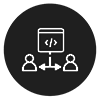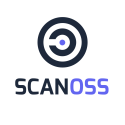Mock my infrastructure! Using Testcontainers for better integration tests.
Integration tests are essential to test server application interaction with infrastructure services like databases, message brokers or others. The Testcontainers framework makes it easy to set up all infrastructure services your application code needs by using Docker images during the test execution. By doing so, integration tests can run independent of any external infrastructure and are more robust and faster to execute.


















